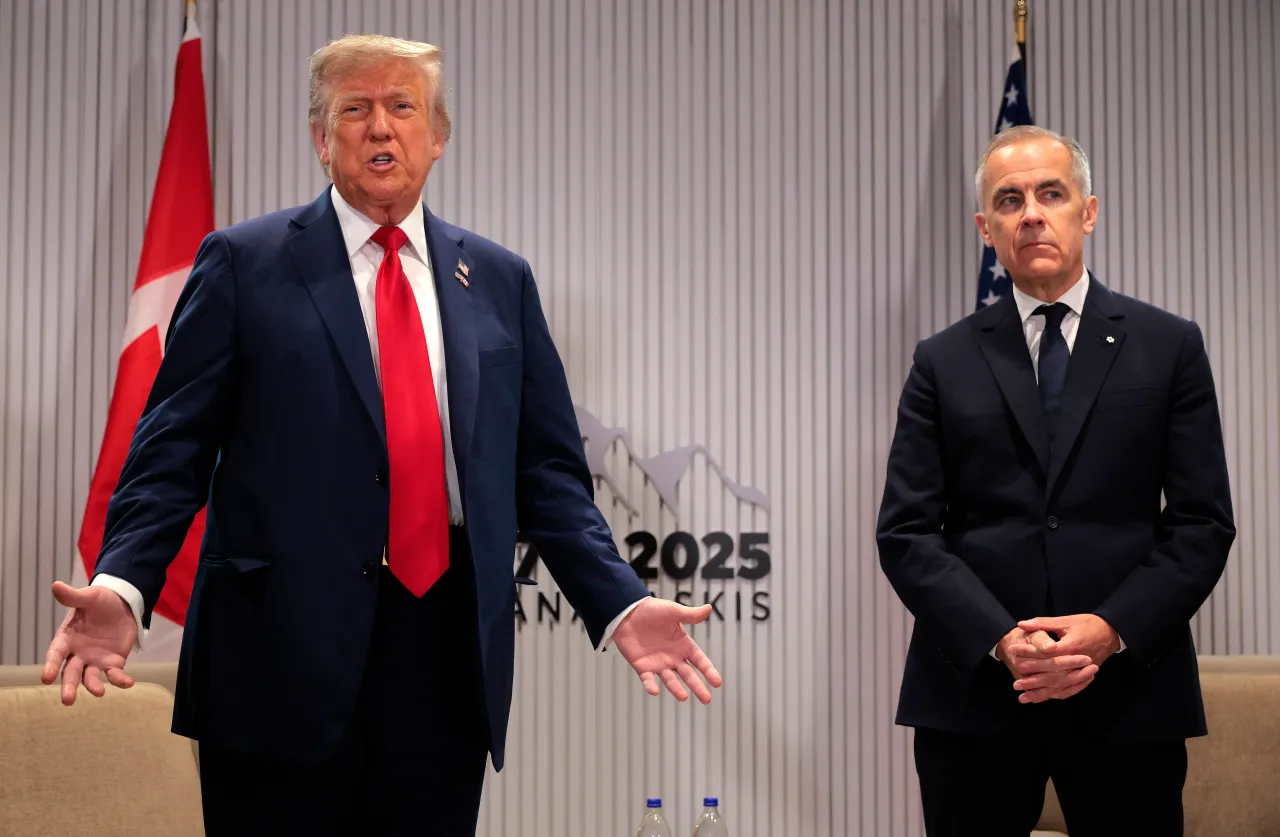Advertisement|Remove ads.
Trump Threatens Canada With 35% Tariff By August, Mulls Blanket 15-20% Rates For Other Countries

Canada became the latest nation to receive a letter from President Donald Trump over the fate of tariffs if a bilateral deal isn’t struck by the Aug. 1 deadline.
The screenshot of the letter shared by the president on his Truth Social account warned that a 35% levy will be imposed on Canadian products entering U.S. shores. As was outlined in the letters sent to the other nations earlier this week, he clarified that this rate is in addition to the sectoral tariffs in place.
Trump also reiterated that transshipped goods will incur additional levies, while companies can avoid the steep tariffs if they decide to build or manufacture products in the U.S. Any retaliation will be met with tariffs raised to the same magnitude, the president said.
Trump highlighted the steep 400% tariffs Canada charges on U.S. dairy imports as he discussed its North American neighbor’s tariff and non-tariff policies and trade barriers that have served to push deficits to unsustainable levels.
“If Canada works with me to stop the flow of Fentanyl, we will perhaps consider an adjustment to this letter,” he added.
Trump’s recent spate of letters, though creating uncertainty in the minds of traders, hasn’t deterred the market’s climb to a record high. Although the market showed volatility this week, the S&P 500 Index reached a new record high on Thursday.
The SPDR S&P 500 ETF (SPY), an exchange-traded fund (ETF) that tracks the S&P 500 Index, has gained 7.4% year-to-date. SPY was among the top 10 trending tickers on Stocktwits late Thursday, but sentiment toward the ETF stayed ‘bearish.’
Meanwhile, the iShares MSCI Canada ETF (EWC) has gained about 16% this year.
Canada has been on the receiving end ever since Trump assumed office. Immediately after his inauguration, he threatened the country and Mexico with a 25% levy “until such time as Drugs, in particular Fentanyl, and all Illegal Aliens stop this Invasion of our Country!”
The U.S. announced a 25% tariff on Canadian goods and a levy on energy and potassium exports from the country on March 4, followed by a 25% tariff on Canadian steel and aluminum products.
A 25% tariff came into effect on auto and auto part imports that were not compliant with the United States-Mexico-Canada Agreement (USMCA). Canada currently enjoys tariff exemption for goods traded under the USMCA, which came into effect on July 1, 2020. Trump did not clarify on Thursday whether this concession would be extended.
Last week, just before a “Digital Services Tax” proposed by Canada against big tech companies was set to take effect, Trump threatened to pause trade talks, forcing Mark Carney’s administration to come around.
Separately, Trump reportedly stated in a phone interview with NBC that countries not included on the list of over 20 countries to which he dispatched letters this week will face “blanket tariffs” of 15-20%.
“We’re just going to say all of the remaining countries are going to pay, whether it’s 20% or 15%. We’ll work that out now,” he said.
For updates and corrections, email newsroom[at]stocktwits[dot]com.
Read Next: Teradyne’s Stock Jumps After Report Links Its Tech To Amazon’s Vulcan Robot – Retail Turns Bullish












/filters:format(webp)https://news.stocktwits-cdn.com/large_Getty_Images_2252194207_jpg_9605cd50d5.webp)
/filters:format(webp)https://st-everywhere-cms-prod.s3.us-east-1.amazonaws.com/unnamed_jpg_9dff551b50.webp)
/filters:format(webp)https://news.stocktwits-cdn.com/large_Getty_Images_2247687123_1_jpg_5a8fc404b7.webp)
/filters:format(webp)https://news.stocktwits-cdn.com/Aashika_Suresh_Profile_Picture_jpg_2acd6f446c.webp)
/filters:format(webp)https://news.stocktwits-cdn.com/large_opendoor_OG_jpg_55300f4def.webp)
/filters:format(webp)https://news.stocktwits-cdn.com/Getty_Images_2243334218_jpg_b1b7c1b222.webp)
/filters:format(webp)https://news.stocktwits-cdn.com/Johnson_and_Johnson_jpg_bc42927ca0.webp)
/filters:format(webp)https://news.stocktwits-cdn.com/Getty_Images_2207639540_jpg_4ae2641504.webp)